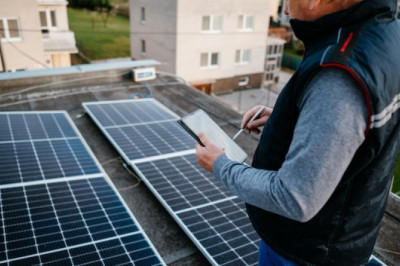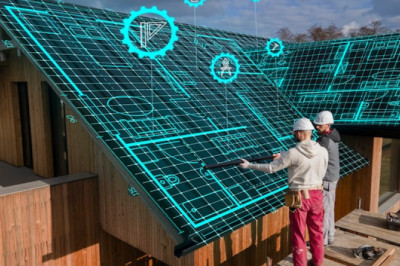Switching to solar energy is a significant step towards sustainable living and can significantly reduce your electricity bills. However, the process of installing solar panels at home involves careful planning and consideration. To ensure you make the most out of your investment and smoothly transition to solar power, here are five essential tips to guide you through the installation process.
Assess Your Energy Needs
Before diving into the world of solar energy, it's crucial to understand your household's energy consumption. This assessment will help determine the size and number of solar panels you'll need to meet your energy requirements effectively. Consider factors such as your monthly electricity usage, the efficiency of appliances, and potential future increases in consumption. An accurate understanding of your energy needs ensures that your solar system is neither underutilized nor overextended, optimizing your investment and ensuring maximum efficiency.
Choose the Right Type of Solar Panels
Solar panels come in various types, each with its own set of advantages and disadvantages. The most common types include monocrystalline, polycrystalline, and thin-film panels. Monocrystalline panels are known for their high efficiency and longevity but come at a higher cost. Polycrystalline panels are more affordable but slightly less efficient. Thin-film panels offer flexibility and are lighter, but they require more space and degrade faster. Researching and consulting with professionals can help you select the type that best suits your budget, roof space, and energy needs.
Evaluate Your Roof's Suitability
The condition, material, and orientation of your roof play a pivotal role in the effectiveness of your solar panel installation. Ideally, solar panels should be installed on a roof that is in good condition, has enough space, and faces south in the Northern Hemisphere (or north in the Southern Hemisphere) to capture maximum sunlight. Roofs with a slope between 15 to 40 degrees are typically considered optimal. If your roof isn't suitable, ground-mounted solar panels might be an alternative. Consulting with a professional installer can help determine the best setup for your home.
Understand Local Regulations and Incentives
Local regulations, zoning laws, and building codes can significantly impact your solar panel installation process. It's important to research and comply with these regulations to avoid any legal issues. Additionally, many regions offer incentives, rebates, and tax credits for solar panel installations, which can substantially reduce the upfront costs and improve the return on investment. Contacting your local government or utility company, or working with a knowledgeable installer, can provide valuable information about the incentives available in your area.
Select a Reputable Installer
Choosing the right installer is as crucial as selecting the solar panels themselves. Look for a reputable, experienced, and certified solar installer who can provide references and examples of previous work. A good installer will not only ensure that your solar panels are correctly installed but also help you navigate permits, inspections, and connections to the grid. They should also offer warranties and maintenance services to protect your investment. Taking the time to research and select a trusted installer can lead to a smoother installation process and long-term satisfaction.











Comments
0 comment